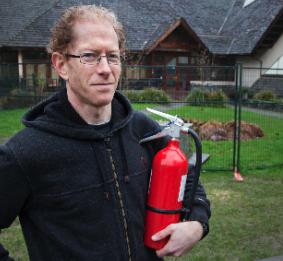Vancouver’s Short Term Incentives for Rental Housing [STIR] program will end this month, and while those who opposed the plan are relieved, they fear similar programs will take its place.
“It expires on Dec 15,” confirms Councillor Tim Stevenson. “The program as we know it has to finish on that date, and we don’t have any legislation going on at the moment through council to extend that.”
“That said, our huge concern is getting rental housing,” he says. “We are in great need for housing.”
Launched in June 2010, STIR offered developers incentives such as waived fees, expedited permit processes and exemptions from existing zoning bylaws to build rental housing — as opposed to condos — to address the city’s shortage of available rental units.
Stevenson says the mayor and council plan to examine new programs and incentives to bring more rental housing to the city.
“The mayor has announced plans for building a Task Force for affordable housing and he plans to initiate that immediately,” Stevenson says.
“We are going to have to take some lessons that we’ve learned from the STIR project and information gathered from the West End Mayor’s Advisory Committee to develop new programs,” he adds.
Randy Helten, former president of the West End Neighbours, an adhoc community group that has staunchly opposed the program, says he is thrilled STIR is ending.
“I’m very happy that STIR is ending because it caused a lot of distrust in the West End community, and it did not succeed in providing affordable rental housing,” he says.
Helten agrees that affordable rental housing is needed but says STIR overrode rezoning bylaws and failed to consider community concerns in the process.
“We expect that there could be a plan similar to STIR. It could be like STIR or even worse,” he worries.
Matt Shillito, a senior city planner, says providing incentives for rental housing development could become permanent city policy. “Staff will review the STIR program and report to council in the new year with recommendations on whether it should continue, and if so in what form,” he says.
Stevenson thinks STIR was a success overall, though less so in the West End.
“Throughout the city it has seemed to have been a very positive program. But in the West End we can’t say it has been positive because we haven’t built buildings and the community was concerned, and because the community was concerned we pulled back,” he says.
Green Party council newcomer Adriane Carr thinks the project failed. “I think that the STIR — which had been experimental — seems to have not achieved the number of rental units and affordable housing that it originally intended,” she says.
Carr agrees that affordable rental housing is needed. “It’s one of the biggest issues in the city.”
“The second most important issue is the development process and how we do development,” she adds.
“STIR is just not the right the way to go about things,” she maintains. “It’s not good public policy. It’s not up to the developers to negotiate their sweet deals. I want to make sure that the process is fair and equitable and a stable base in which decisions are made.”
While the STIR application process will close on Dec 15, Shillito says all applications already submitted will still be considered.
And the contentious 1401 Comox St development, which has been stalled by the city pending further community consultation, is still under review, according to Shillito.
“I understand from the rezoning planner that the applicant has recently submitted a revised proposal, which seeks to respond to concerns raised by the community,” Shillito says. “We expect some public information meetings to be held on these revised plans early in the new year.”
City staff will also begin work on the West End’s new community plan in late January, Shillito confirms.
“We’re in the process of developing the terms of reference for the plan, and when the terms of reference are approved by council the new plan process will be formally launched,” he says.
The city hosted meetings throughout Vancouver over the past year to gain input from community stakeholders regarding the planning process — a process Helten says was necessary.
“The success of the West End plan depends on if the city does its job by engaging trust among all its community stakeholders,” he says.
“It’s good that the city has felt pressure from the West End and our other communities to improve community concerns regarding the planning process,” he continues. “We’re highly sensitive to the problems we’ve observed. Because we’ve had many questions and concerns about how the city is dealing with the community.”
While still concerned about future development projects, Helten says he is trying to remain positive. “If that trust is earned and initiated then everything should go smoothly,” he says.
“I’m very happy that STIR is ending because it caused a lot of distrust in the West End community, and it did not succeed in providing affordable rental housing,” says Randy Helten, shown here in front of 1401 Comox St in February.

 Why you can trust Xtra
Why you can trust Xtra


